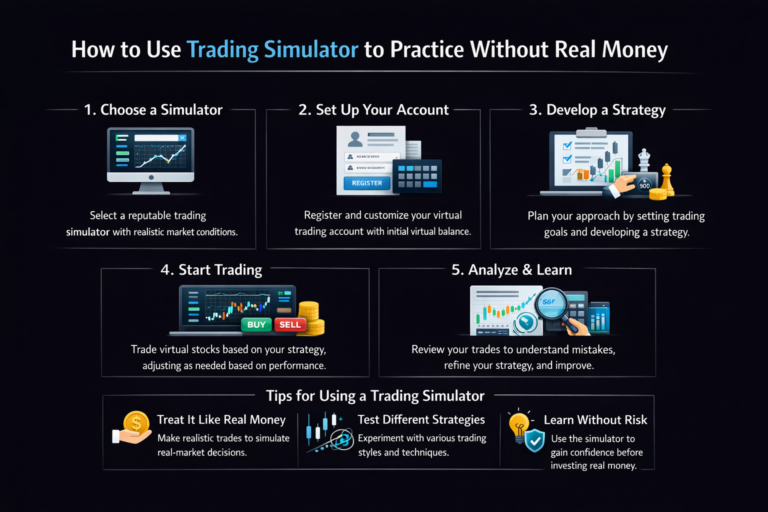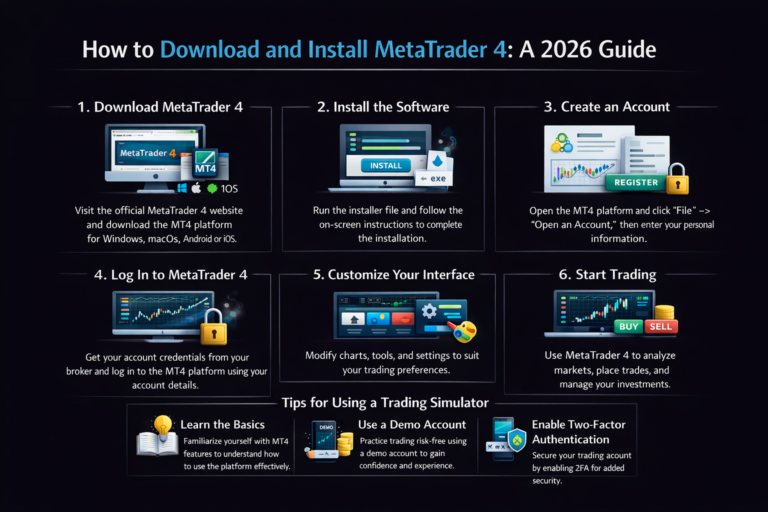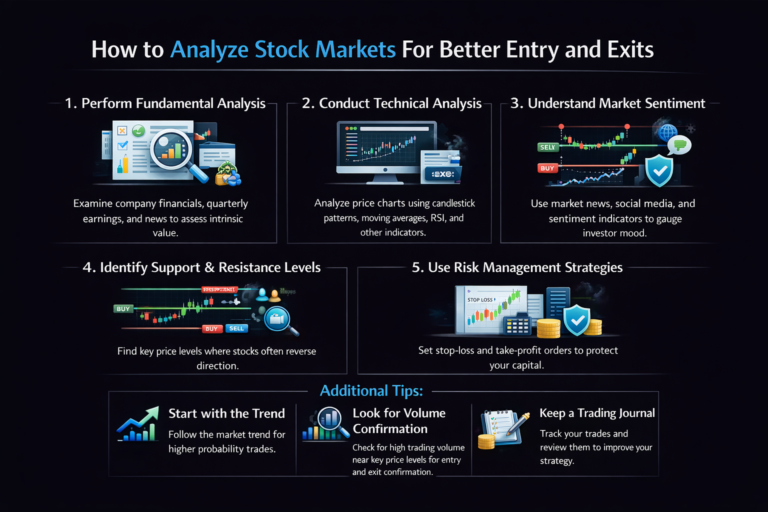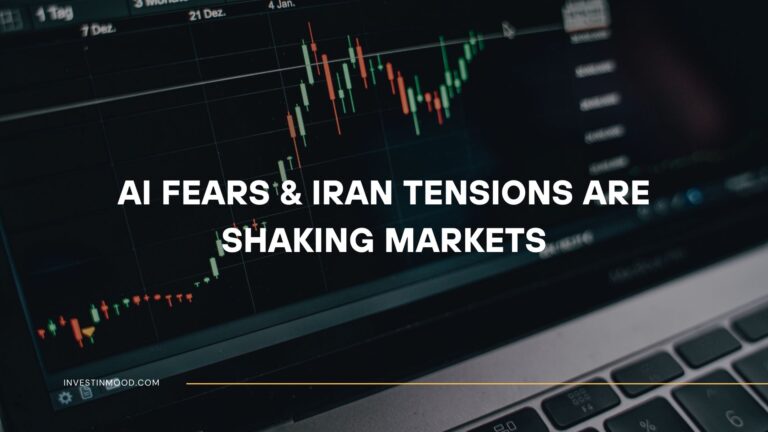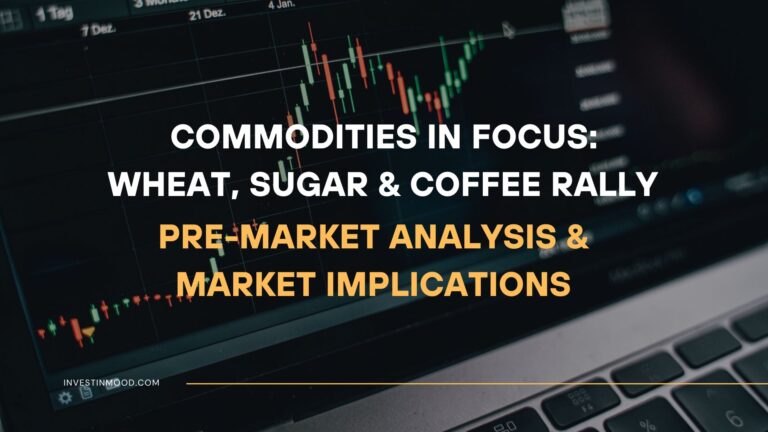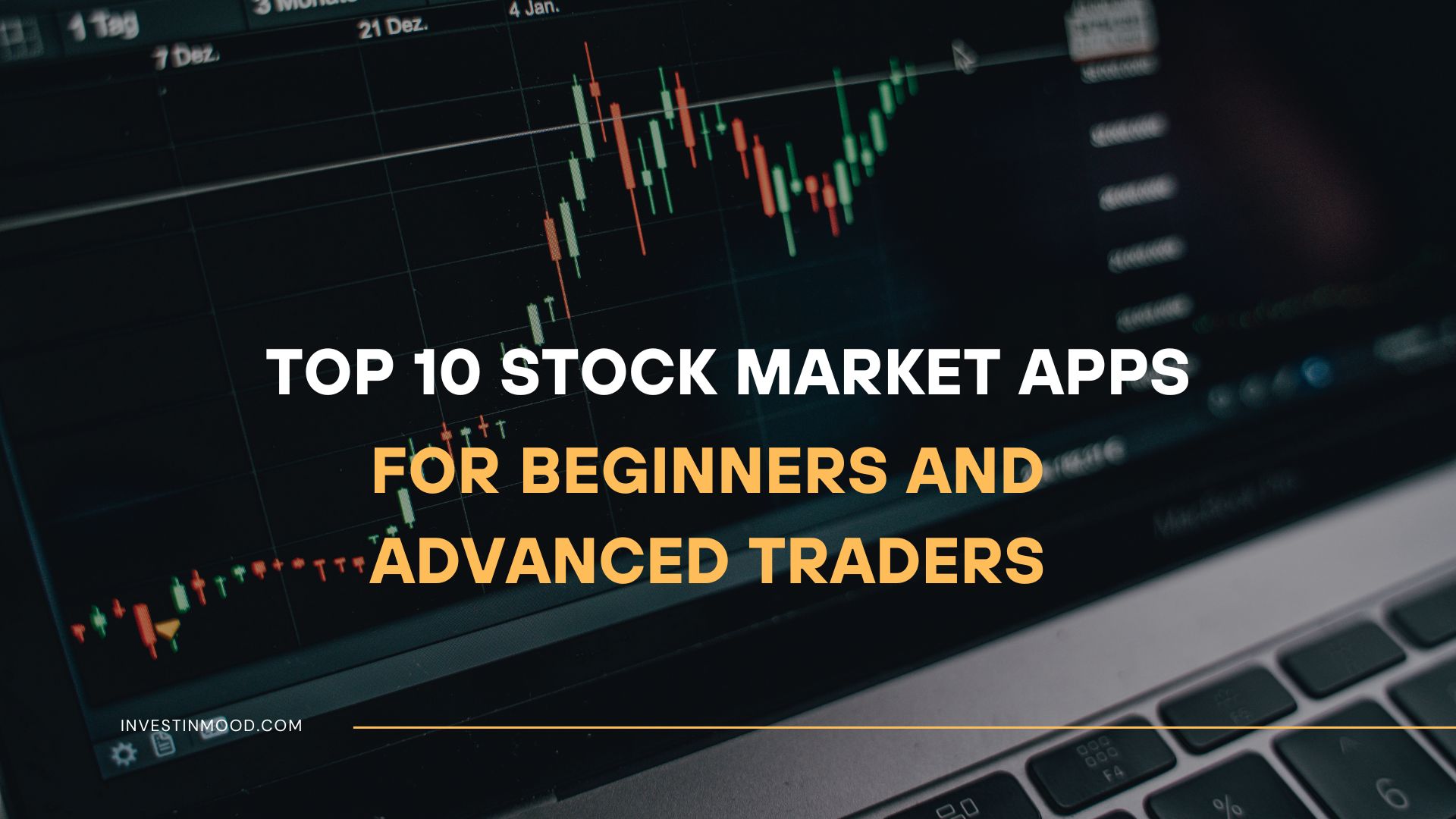
Top 10 Stock Market Apps For Beginners and Advanced Traders
Taking control of your financial future starts with the right tools in your pocket. This guide cuts through the noise to review the best stock trading apps and investment platforms available today. We help you find the perfect fit for your strategy and experience level, whether you’re a beginner making your first trade in the US or an advanced trader in the UK looking for sophisticated charting tools.
What are Stock Market Apps
Stock market apps are mobile or web-based platforms that allow individuals to buy, sell, and monitor securities like stocks, ETFs, options, and cryptocurrencies. They have democratized investing, moving it from the realm of phone calls to brokers to instant, commission-free trades at your fingertips. For active traders, these apps provide real-time data, advanced charting, and rapid execution. For long-term investors, they offer portfolio tracking, dividend reinvestment, and educational resources. Think of them as your personal financial command center for the public markets.
Key Takeaways
Goal-Based App Selection
| Your Primary Goal | Best App Type | Key Feature to Look For |
|---|---|---|
| Learning & First Trades | Beginner-Friendly App | Intuitive UI, integrated education, fractional shares, low minimums. |
| Long-Term Investing | Robo-Advisor/Set-and-Forget | Automated investing, portfolio rebalancing, low fees, retirement focus. |
| Active & Day Trading | Professional Platform | Advanced charting, real-time data, Level 2 quotes, low latency. |
| Social & Copy Trading | Community-Driven App | Leaderboards, transparent performance stats, easy copy-trade functions. |
For traders in the UK, ensure the platform is regulated by the FCA and offers access to the London Stock Exchange (LSE) and popular UK investment trusts. US users should check for SEC regulation and compatibility with major US brokers for account linking.
Top 10 Stock Market Apps For Beginners and Advanced Traders
We’ve tested the most popular platforms on the market to bring you unbiased, detailed reviews. Here are our top 10 picks for 2026, broken down by their strengths, ideal user, and key features.
1. Fidelity Investments
Overall Score: 5/5
Best For: Comprehensive wealth management for investors of all levels.
Pricing: $0 stock/ETF trades. No account fees for standard accounts.
Fidelity is a financial services giant that has masterfully adapted to the mobile era. Its main app and the simplified “Fidelity Spire” app cater to both advanced investors and complete beginners. It’s more than a brokerage; it’s a full-scale financial ecosystem that integrates cash management, exceptional research, and top-tier educational content directly into the user experience.
Key Features:
- Extensive research from third parties and Fidelity’s own analysts.
- Fractional share investing for stocks and ETFs.
- Fully integrated cash management account with high yield and ATM fee reimbursement.
- Robust retirement and planning tools.
- Intuitive, customizable mobile and web platforms.
- Top-Tier Research: Incredibly robust research and educational resources from multiple sources.
- Customer Service: Excellent customer service with 24/7 phone support.
- Security & Reliability: Strong security protocols and a long history of financial reliability.
- Complexity: The full app can feel overwhelming for absolute beginners.
- Options Trading: The options trading approval process can be more stringent than competitors.
- Interface: Powerful but less modern and “sleek” than some newer brokers.
Why We Picked It: We chose Fidelity for the #1 spot because it successfully serves both beginners and experts without compromising on features, research, or security. Its move to zero commissions and the introduction of fractional shares, combined with its stellar reputation, makes it the most well-rounded choice for 2026.
2. Charles Schwab
Overall Score: 4.8/5
Best For: Investors seeking a powerful all-in-one platform with excellent banking.
Pricing: $0 stock/ETF trades. No account fees.
Like Fidelity, Charles Schwab is a titan of the industry that offers a seamless blend of high-end trading tools and accessible investing. Its integration with TD Ameritrade’s thinkorswim platform (post-merger) gives it an unbeatable edge for serious traders, while its standard app and banking services are perfect for the everyday investor.
Key Features:
- Access to the professional-grade thinkorswim platform.
- High-yield investor checking account with no foreign transaction fees.
- Extensive ETF selection and no-transaction-fee mutual funds.
- Strong global research and market commentary.
- Physical branch locations for in-person support.
- thinkorswim Platform: Powerful professional-grade platform for advanced charting and analysis.
- Banking Integration: World-class banking with unlimited ATM fee rebates.
- Research & Education: Excellent research tools and in-depth educational content.
- Platform Overload: The number of different platforms can be confusing to navigate.
- Fractional Shares: Limited to S&P 500 companies, less flexible than competitors.
- Minimums: Minimums may apply for certain advanced trading strategies.
Why We Picked It: Schwab earns a top spot for its unparalleled combination of trading power (via thinkorswim) and best-in-class banking services, making it a superior choice for investors who want a single hub for their entire financial life.
3. Interactive Brokers (IBKR)
Overall Score: 4.7/5
Best For: Active traders, professionals, and international investors.
Pricing: Tiered pricing (low per-share costs) or IBKR Lite ($0 commissions).
Interactive Brokers is the industry benchmark for professional-grade trading tools accessible to retail investors. It offers an unparalleled depth of features, including access to over 150 markets in 33 countries, a massive range of tradable assets (stocks, options, futures, forex, bonds), and some of the lowest margin rates in the industry. Its flagship platform, Trader Workstation (TWS), is incredibly powerful but has a steep learning curve that can be intimidating for beginners. However, for those who need sophisticated order types, deep liquidity, and comprehensive portfolio analysis, IBKR is in a class of its own.
Key Features:
- Global access to stocks, options, futures, forex, and bonds.
- Powerful Trader Workstation (TWS) desktop and mobile platforms.
- Lowest margin rates among major brokers.
- Advanced trading tools and algorithms.
- Extensive portfolio analysis and risk management features.
- Global Access: Unmatched global market access and product offerings.
- Powerful Platform: The most powerful and customizable trading platform (TWS) available to retail traders.
- Low Costs: Consistently the lowest margin rates and trading costs for high-volume traders.
- Steep Learning Curve: The platform is overwhelming and complex for beginners.
- Account Minimums: Minimums exist for the professional-tier pricing structure.
- Complex UI: User interface is functional but not intuitive or modern.
Why We Picked It: No other platform on this list can match IBKR’s breadth of tradable products and its low-cost structure for high-volume, professional-style trading. It is the definitive choice for serious active traders.
4. E*TRADE (by Morgan Stanley)
Overall Score: 4.5/5
Best For: A balance of user-friendly tools and powerful trading features.
Pricing: $0 stock/ETF trades.
ETRADE has long been a leader in the online brokerage space, successfully catering to two distinct audiences. Its standard web and mobile platforms are clean, intuitive, and excellent for beginner and intermediate investors, offering strong educational content and easy-to-use tools. At the same time, its flagship ETRADE Pro desktop platform provides a powerful suite of advanced charting, screening, and options trading tools that appeal to active traders. This “two platforms in one” approach means investors can start simple and graduate to more sophisticated tools without the need to switch brokers.
Key Features:
- Two distinct platforms: user-friendly standard app and powerful E*TRADE Pro.
- Excellent and renowned options trading tools.
- Large library of educational videos and webinars.
- Free access to independent research from firms like Morningstar and CFRA.
- Integrated banking and cash management.
- Dual Platform Approach: Excellent balance between beginner-friendly and advanced trading tools.
- Options Powerhouse: Top-tier options analytics and trading platform.
- Education & Support: Strong educational resources and customer support.
- Desktop-Centric Pro: The power of E*TRADE Pro is only available on desktop.
- Mobile Limitations: The mobile app lacks some advanced features of competitors.
- Disjointed Feel: Integration between the simple and pro platforms can feel disjointed.
Why We Picked It: It perfectly bridges the gap between beginner and advanced, providing a seamless path for investors to grow into more sophisticated strategies without changing brokers.
5. Webull
Overall Score: 4.3/5
Best For: Active traders who love data and a modern interface.
Pricing: $0 commissions for stocks, ETFs, and options.
Webull has aggressively carved out a niche by offering a sleek, tech-forward platform that is packed with advanced tools typically reserved for paid subscriptions. It appeals to a younger, more active demographic of traders who crave data. The app provides an impressive array of features for free, including technical indicators, drawing tools, real-time Level 2 market data (with a deposit), and extended trading hours. While its educational content is not as robust as Fidelity’s or E*TRADE’s, its focus on providing a powerful, data-rich trading experience at zero cost is its defining characteristic.
Key Features:
- Free advanced charting with dozens of technical indicators.
- Free real-time Level 2 quotes (Nasdaq TotalView) with a minimum deposit.
- Extended trading hours (4 AM to 8 PM ET).
- Paper trading platform to test strategies risk-free.
- Sleek, modern, and highly customizable user interface.
- Unbeatable Value: Offers advanced charts and Level 2 data for free.
- Modern Interface: Sleek, intuitive, and highly customizable user interface.
- Flexible Hours: Extended trading hours provide more flexibility.
- Limited Support: Primarily email and chat, no 24/7 phone support.
- Weak Education: Less educational content compared to established rivals.
- PFOF Model: Relies on Payment for Order Flow, which can impact trade execution.
Why We Picked It: It provides the best “bang for your buck” in terms of free advanced features, making it a favorite among millennials and Gen Z traders who are comfortable with a self-directed, data-centric approach.
6. Robinhood
Overall Score: 4.0/5
Best For: Absolute beginners drawn to simple, commission-free investing.
Pricing: $0 commissions.
Robinhood revolutionized the brokerage industry by pioneering commission-free trading and a minimalist, mobile-first design that made investing feel accessible and even fun. It stripped away the complexity of traditional platforms, using a simple list-based interface and confetti animations to lower the barrier to entry for a new generation of investors. While it has faced scrutiny over its business practices and gamification elements, its core appeal remains its sheer simplicity. Recent additions like IRA matching and fractional share investing show the platform is maturing to serve long-term investors as well.
Key Features:
- Extremely simple and intuitive user interface.
- Commission-free trading in stocks, ETFs, options, and crypto.
- Fractional share investing.
- Cash management account with a debit card.
- IRA with a 1% match on eligible contributions.
- Simplicity: The most intuitive and beginner-friendly user experience on the market.
- Zero Cost: No account minimums and truly commission-free trading.
- Fractional & Crypto: Offers fractional shares and crypto trading in one app.
- Limited Tools: Very limited research and educational tools.
- Poor Support: Customer support has been historically slow and difficult to reach.
- Execution Issues: Heavy reliance on PFOF and past issues during high volatility.
Why We Picked It: Despite its controversies, its user experience for making a first trade is unmatched, and its recent additions like IRA matching show it’s evolving to retain users for the long term.
7. M1 Finance
Overall Score: 4.6/5
Best For: Long-term, hands-off “pie” based investing.
Pricing: $0 trades; $125/yr for M1 Plus (extra features).
M1 Finance is a unique hybrid that combines the customization of a brokerage with the automation of a robo-advisor. It is explicitly not designed for active trading. Instead, users build a portfolio “Pie” comprised of up to 100 “slices,” which can be individual stocks or ETFs. Once the Pie is set, the platform automatically invests all deposits to maintain your target allocation. This allows for automatic rebalancing, tax-efficient investing, and a completely hands-off approach to building a customized portfolio. It’s ideal for the investor who knows what they want to own but doesn’t want the hassle of manual management.
Key Features:
- Customizable “Pies” for automated, fractional-share investing.
- Dynamic rebalancing with new deposits.
- Borrowing power through M1 Borrow (margin loan).
- M1 Plus subscription offers custodial accounts, smart transfers, and later trading windows.
- Focus on long-term, strategic investing rather than active trading.
- Automation: Ultimate set-and-forget automation for customized portfolios.
- Auto-Rebalancing: Powerful, free automated rebalancing.
- Visual Interface: Easy-to-use visual interface for portfolio construction.
- Single Trading Window: Only one trading window per day, unsuitable for active trading.
- Limited Orders: No limit, stop, or other advanced orders.
- Product Limitations: No traditional mutual funds or bonds available.
Why We Picked It: It’s the ultimate set-and-forget investing app for building a customized portfolio with automatic rebalancing, perfectly bridging the gap between a traditional broker and a robo-advisor.
8. Trading 212
Overall Score: 4.4/5
Best For: UK and European beginners and investors.
Pricing: $0 commissions; Fx fees may apply on CFD side.
Trading 212 has taken the UK and European markets by storm by offering a Robinhood-like experience combined with M1 Finance’s “Pies” feature. The app is designed with a clean, intuitive interface that makes it incredibly easy for beginners to start investing with no minimum deposit. It offers commission-free investing in stocks and ETFs from global markets, and its “Pies” allow for automated, fractional-share investing into a customized portfolio. While it also offers a CFD trading platform, its focus on making real investing accessible has been its key to success.
Key Features:
- Commission-free investing in real stocks and ETFs.
- “Pies” for automated, fractional-share portfolio investing.
- No minimum deposit requirement.
- Clean, simple, and user-friendly mobile and web apps.
- Free demo account with virtual money to practice.
- User Experience: Excellent, intuitive user experience tailored for beginners.
- Automated Pies: Powerful Pies feature for automated investing at no extra cost.
- Zero Cost: True commission-free investing with no account minimums.
- Geo-Restricted: Not available to residents of the United States.
- Support Delays: Customer support can be slow during peak times.
- CFD Focus: The prominent offering of CFDs can be risky for inexperienced users.
Why We Picked It: It is arguably the best all-around free investing app available to UK and European residents, combining a great user interface with powerful automation features.
9. eToro
Overall Score: 4.2/5
Best For: Social and copy trading.
Pricing: $0 stock/ETF trades; spread-based costs.
eToro’s core philosophy is centered around its social trading network, transforming investing from a solitary activity into a communal one. The platform allows you to see what other investors are buying and selling, share insights, and, most notably, automatically copy the trades of successful investors through its “CopyTrader” feature. This allows beginners to mirror the strategies of experienced traders with a single click. While it also offers standard commission-free stock trading, its unique value proposition is this social ecosystem, which provides a form of passive, strategy-based investing that is different from traditional robo-advisors.
Key Features:
- CopyTrader™ to automatically replicate the trades of top performers.
- Social news feed where users share ideas and strategies.
- Commission-free stock and ETF trading (costs are built into the spread).
- “Popular Investors” program that rewards successful traders.
- Access to cryptocurrencies and other CFDs.
- Social Trading: Unique and powerful social trading and copy trading features.
- Learning Platform: Great for beginners who want to learn from and follow others.
- User-Friendly: Straightforward interface for discovering investors to copy.
- Pricing Model: The spread-based pricing model can be less transparent and more expensive.
- Strategy Risk: Not all copied trades may be suitable for your personal risk tolerance.
- Withdrawal Process: Withdrawals can be slower and subject to fees.
Why We Picked It: It’s the leader in a unique niche, making it ideal for those who want to learn from or mirror the strategies of others, offering a form of investing that is both educational and potentially hands-off.
10. Vanguard
Overall Score: 4.1/5
Best For: Buy-and-hold investors focused on low-cost index funds.
Pricing: $0 stock/ETF trades; Vanguard mutual funds are transaction-fee free.
Vanguard’s app is a direct reflection of its corporate philosophy: long-term, low-cost, disciplined investing. The interface is functional, straightforward, and devoid of the gamification or complex charting tools found on other platforms. This is by design. Vanguard is built for the investor whose primary goal is to buy and hold low-cost index funds and ETFs, particularly Vanguard’s own, which are renowned for their rock-bottom expense ratios. While you can trade individual stocks and other ETFs, the platform is optimized for building a simple, diversified portfolio and monitoring it over decades, not days.
Key Features:
- Access to Vanguard’s suite of ultra-low-cost index funds and ETFs.
- Strong focus on retirement and long-term goal planning tools.
- Commission-free trading of Vanguard ETFs.
- Reputable, client-owned structure that aligns with investor interests.
- Simple, no-frills interface that avoids encouraging active trading.
- Lowest Costs: The lowest-cost index funds and ETFs in the industry.
- Long-Term Focus: Unwavering focus on long-term, disciplined investment philosophy.
- Trust & Reputation: High trust and reputation for putting investor interests first.
- Basic Platform: Mobile and web platforms are basic and lack advanced trading tools.
- Not for Active Trading: The experience is deliberately slow-paced.
- Fund Minimums: Higher minimums for investing in many of its popular mutual funds.
Why We Picked It: For the pure, cost-conscious index investor, there is no better-aligned platform. Its rock-bottom expense ratios on its own funds are its killer feature, and the entire ecosystem is designed to support a successful buy-and-hold strategy.
How to Keep Your Trading Account Safe
While brokers provide security, you are the first line of defense. Here’s a non-negotiable checklist:
- Enable Two-Factor Authentication (2FA): This is the single most important step. Use an authenticator app (like Google Authenticator or Authy) instead of SMS if possible.
- Use a Unique, Strong Password: A password manager is highly recommended to create and store complex passwords.
- Beware of Phishing Scams: Never click on links in unsolicited emails or texts claiming to be from your broker. Always navigate to the website directly.
- Monitor Account Activity: Regularly review your statements and trade confirmations for any unauthorized activity. Set up real-time alerts for logins, trades, and withdrawals.
- Verify SIPC/FSCS Membership: Before depositing any money, confirm your broker is a member of the Securities Investor Protection Corporation (SIPC) in the US or the Financial Services Compensation Scheme (FSCS) in the UK.
A Real-World Example: From Novice to Confident Investor
Consider Mark, a 28-year-old software engineer in Austin, Texas. He had some savings but was intimidated by the stock market. He started with Robinhood, drawn by its simple interface. He bought a few fractional shares of companies he knew, like Apple and Netflix. This built his confidence.
After a year, he wanted to build a proper, diversified portfolio for retirement. He found M1 Finance and created a “Pie” with 80% in low-cost ETFs (like VTI and VXUS) and 20% in individual stocks he believed in. He set up automatic monthly deposits, and M1 handled the rest, keeping his portfolio balanced according to his plan.
Now, as his knowledge grows, he’s exploring more advanced strategies. He’s opened a Fidelity account to access their deep research reports and is practicing with their free stock screening tools before making his next big investment.
The Psychology of Mobile Trading: Avoiding Common Pitfalls
The convenience of trading from your phone comes with behavioral risks. Being aware of them is half the battle.
- The “Casino” Effect: The colorful, app-based interface can make trading feel like a game. This can lead to impulsive decisions. Strategy: Treat every trade with the same seriousness you would on a desktop. Have a plan before you open the app.
- Notification Overload: Constant price alerts can create anxiety and a reactive trading mindset, pushing you towards short-term speculation over long-term investing. Strategy: Use notifications sparingly. Set alerts for major price thresholds, not every minor fluctuation.
- Analysis Paralysis: Having dozens of technical indicators on a small screen can be overwhelming and lead to indecision. Strategy: Simplify. Focus on a few key metrics you understand well, whether you’re a fundamental or technical investor.
- FOMO (Fear Of Missing Out): Social trading features and news feeds can create a herd mentality. Strategy: Stick to your own research and investment thesis. Don’t chase stocks just because they are trending.
Stock Market Apps vs Robo-Advisors
It’s important to understand how stock market apps differ from other common financial tools. While they often have overlapping features, their primary functions are distinct.
| Feature | Stock Market Apps | Robo-Advisors |
|---|---|---|
| Primary Function | Self-directed trading & investing | Automated portfolio management |
| Hands-On Level | High (You make all decisions) | Low (Algorithm manages portfolio) |
| Cost Structure | $0 commissions + potential data fees | Annual % fee (AUM – Assets Under Management) |
| Best For | Active traders & engaged investors | Hands-off, passive investors |
Conclusion
Ultimately, the right stock market app acts as your gateway to financial growth and literacy. It provides the tools, data, and execution speed needed to transition from a passive saver to an active participant in your financial future. While the choice depends heavily on your individual strategy, risk tolerance, and experience level, the act of choosing one is a critical step. The clarity and control gained from having a direct line to the markets is empowering. Start by trying out a beginner-friendly app to build the habit of investing, and don’t be afraid to graduate to more powerful platforms as your skills and portfolio grow.
Related Terms:
- Broker-Dealer: A firm that buys and sells securities for its own account or on behalf of its customers. Fidelity, Charles Schwab, and Interactive Brokers are all broker-dealers.
- SIPC Insurance: The Securities Investor Protection Corporation protects customers if their brokerage firm fails. It covers up to $500,000, including a $250,000 limit for cash. In the UK, the equivalent is the Financial Services Compensation Scheme (FSCS), which covers up to £85,000.
- Payment for Order Flow (PFOF): A practice where brokers like Robinhood and Webull send their customers’ orders to market-making firms (like Citadel Securities) for execution, rather than directly to an exchange. The market maker pays the broker for this order flow, which allows the broker to offer $0 commissions. Critics argue it can lead to less optimal trade execution for the user.
- Fractional Shares: A portion of an equity stock that is less than one full share. This allows investors to buy into high-priced companies like Amazon or Google with as little as $1, making diversification more accessible.
Frequently Asked Questions
Recommended Resources
- How to Analyze a Stock Before You Buy
- Understanding ETFs: A Beginner’s Guide
- Tax Implications of Investing: What You Need to Know
- SEC.gov – Investor.gov for official educational resources.
- FINRA.org for broker checks and investor alerts.
- Investopedia for comprehensive definitions and tutorials.
- The Motley Fool for investing guides and stock recommendations.
